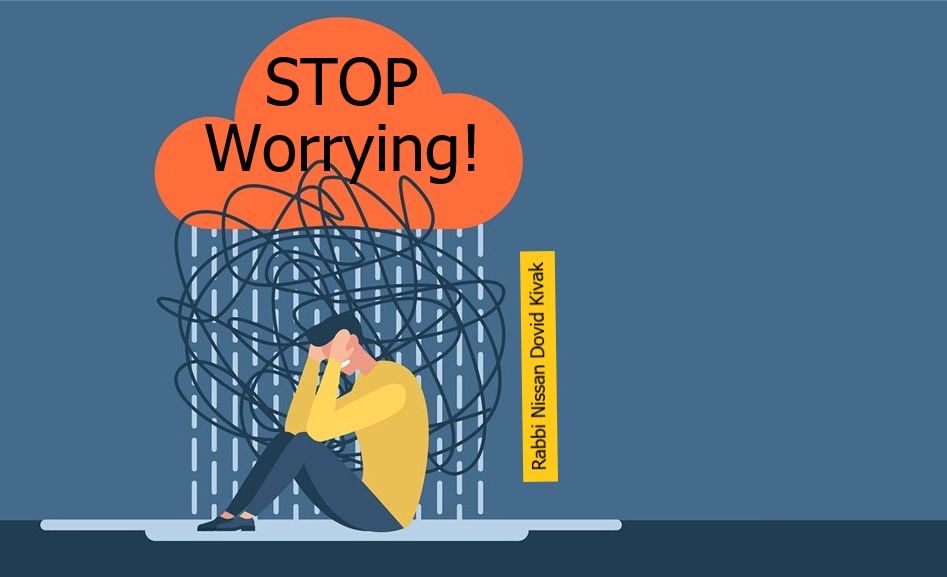
The King’s Debt Collector
When the deadline date arrived, the merchant could barely afford an old dry loaf of black bread for his starving family, much less repay the 5,000 rubles he owed…

The more we contemplate Divine judgment, the scarier it appears. The holy Rebbe Chanina says[1] that if a person thinks Hashem doesn’t hold a person liable for every single wrongdoing, then his or her intestines will turn inside out. In the Gemara’s discussion immediately following, Rebbe Chanina adds that Hashem forgives those who repent.
Rebbe Natan of Breslev asks, “Who can be so sure that his or her teshuva (penitence) is sufficient? And who can be so sure that he atoned for every act of wrongdoing?” Scary, or what?
Rebbe Nachman always speaks about serving Hashem with joy. He also says that teshuva must be done with joy. How can we possibly do either if we’re frozen with fear? Is that what Hashem wants?
Certainly not.
True, we can’t ever be sure whether our teshuva is sufficient or comprehensive enough. But that’s no reason to lose heart. Rebbe Natan tells us how to have an enjoyable, worry-free Rosh Hashanah and  Yom Kippur without the anxiety of beating our chests until they’re bruised black and blue. He gives his advice in a parable:
Yom Kippur without the anxiety of beating our chests until they’re bruised black and blue. He gives his advice in a parable:
A merchant needed an investor so that he’d have the capital to generate new business. He couldn’t find one so he went to the king and borrowed five thousand rubles, promising the king that he would return the loan within a year. The king agreed and granted the loan to the merchant. The merchant signed a promissory note that stipulated the deadline date for repaying the king in full.
With the five thousand rubles that the king loaned him, the merchant went to the fair in Leipzig and invested in all types of goods that would potentially bring handsome profits. But one thing led to another and, following a string of misfortunes that included thieves on the way, dishonest customs officials at the border and a wagon-master who robbed him of the few goods that remained, the merchant was left penniless.
When the deadline date for repaying the king arrived, the merchant could barely afford a three-day-old moldy loaf of black bread for his starving family, much less pay back the five thousand rubles to the king. Yet, he knew that if he tried to run away from the king, sooner or later the Royal Guard would catch up with him and then his end would be all the more bitter. He decided to return to the palace on the deadline day and to entrust his fate to the king’s mercy.
Gaining entrance to the king, the downhearted merchant threw himself at the king’s feet, sobbing heavily, unable to speak a word.
“Calm down,” the benevolent king comforted him, “what is so terrible?”
“Y-your M-majesty,” wept the merchant, “today was the deadline debt for the repayment of the five-thousand rubles I borrowed from you last year. I’ve suffered a series of misfortunes and have been rendered a pauper. I lack a single ruble to repay Your Majesty,” and began sobbing again.
The king consoled the merchant, saying, “It his highly admirable that you have not avoided your responsibilities. You have done the right thing by coming to me. Your debt of five-thousand rubles is a mere pittance to me. The entire kingdom owes me money to the sum of hundreds of millions, even billions of rubles. Everyone borrows from me and few repay.” Pondering for a moment, the king added, “I have an idea for you, merchant, which you won’t be able to refuse.”
Encouraged by the king’s kindness and his warm words, the merchant asked, “And what is that, Your Majesty?”
“I will hereby wipe your ledger clean of all debt. Furthermore, I will pay you a handsome salary. Come to work for me; the Royal Exchequer shall provide you with a list of people who owe me money, with their addresses and the amount of each one’s outstanding debt. I want you to become my Royal Debt Collector. With minimal effort, you’ll not only bring me hundreds of times more than what you owe me, but you’ll also make a highly respectable income for your family. Agreed?”
The merchant couldn’t believe his good fortune and readily accepted the king’s offer.
That’s the parable. The moral of the story is that come time of Rosh Hashanah and Yom Kipper, who is so presumptuous to say that he or she satisfactorily repaid an entire year’s debts to the King of kings? No one! Yet, our lives depend on it. “That’s okay,” Hashem tells us. Our individual debts are nothing compared to the spiritual debts of the entire Jewish People.
Hashem gives us the chance to be His Royal Debt Collectors. By bringing other people close to Hashem, we gain partnership in the merit of their good deeds and those of their offspring for posterity. And, says Rabbi Shalom Arush, nothing brings people closer to Hashem like spreading emuna in the world.
Don’t lose heart; if you have no idea how to spread emuna in the world, you can give a Pidyon Nefesh, a generous donation that is as effective as a ritual sacrifice in the Holy Temple, which helps to atone for you and your family members. Donate to Emuna Outreach – not only will the King wipe your debts clean, but you’ll also receive unfathomable merits for the many souls that your donation will help us reach, in Israel and around the world.
May you and yours be inscribed and sealed in the Book of Life for a healthy and prosperous New Year, amen!











Tell us what you think!
Thank you for your comment!
It will be published after approval by the Editor.